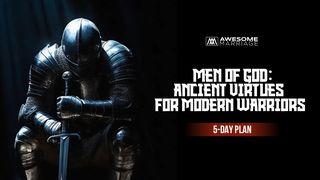We Believe In Jesus: The ChristSample

Office of Christ: Luke 3:15-17
In some sense, Jesus held the office of Christ from the beginning of his incarnation. He was born the heir to David’s throne, and proclaimed by angels as the Christ. But his appointment wasn’t publicly declared until his baptism, when it was announced to the world by the other members of the Trinity. The Holy Spirit confirmed that Jesus was the Christ by descending on him like a dove, and God the Father confirmed him as the Christ by speaking audibly from heaven.
Although neither the Holy Spirit nor the Father specifically used the word “Christ” at the time, God had already revealed to John the Baptist that the one who received these signs would be the Christ. We find these details in Luke 3:15-22 and John 1:19-36. This confirmation prepared him for office by formally announcing to the nation and to the world that God’s Christ had finally come.
One objection that has been raised against calling Jesus the Christ is that he was never actually anointed with oil to the office of Messiah. But the gospel records show that Jesus was anointed by the Holy Spirit at his baptism. This anointing officially declared Jesus to be the Christ, and also empowered him for ministry. As God incarnate, Jesus was omnipotent. But the office of Christ is a human one. So, he veiled his power and glory in order to be like the people he came to save. Like other anointed human beings, Jesus relied on the power of the Holy Spirit for his ministry. We see this in places like Luke 4:1, 14 and Acts 10:38.
Consider what John 3:34 says about the power Jesus received from the Holy Spirit:
The one whom God has sent speaks the words of God, for God gives the Spirit without limit (John 3:34).
When Jesus came to John the Baptist to be baptized, John objected because Jesus was already righteous. Jesus had never sinned, and therefore didn’t need to repent. But Jesus responded by saying that it wasn’t enough for him to be personally sinless; he also had to fulfill all the necessary righteous works that had been appointed to him.
Consider their discussion in Matthew 3:14-15:
John tried to deter him, saying, “I need to be baptized by you, and do you come to me?” Jesus replied, “Let it be so now; it is proper for us to do this to fulfill all righteousness.” Then John consented (Matthew 3:14-15).
Scripture
About this Plan

This reading plan investigates the doctrine of Christology, focusing on the person and work of Jesus Christ. Jesus is God in the flesh, the center of all history, and the only hope for the salvation of humanity and creation. This plan explores the life and ministry of Jesus Christ.
More
Related plans

Road to Pentecost: Five Days of Spiritual Renewal

The Thread for Survivors: A 5-Day Devotional Journal of Healing, Finding Your Voice and Sacred Becoming

Islands, Tides, and the Deep: A Marriage Message From the Sea

Men of God: Ancient Virtues for Modern Warriors

The Kingdom Manifesto

Spiritual Training: The Discipline of Fasting and Solitude

Financial Discipleship – the Bible on Bribes

Be Ye Holy: The Holy Spirit's Role in Our Lives

Alive and on Fire - a Video Devo With Illusionist, Dustin Tavella
